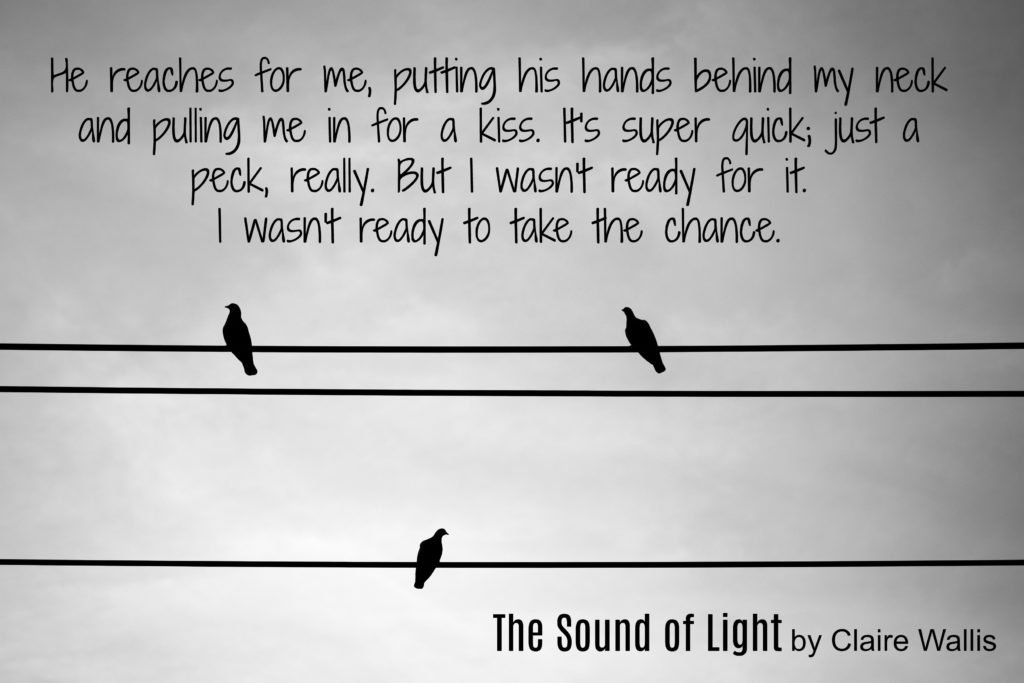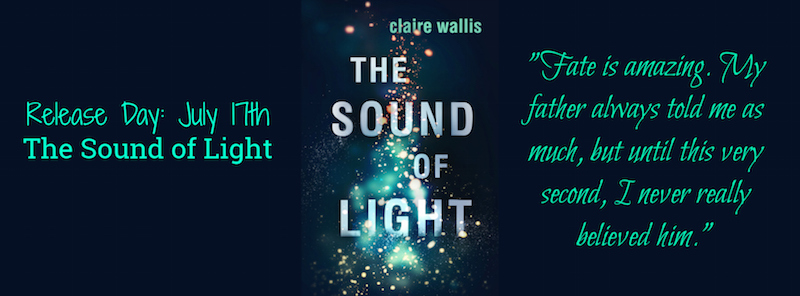FAQ

What projects are you currently working on?
Right now, I’m enjoying the recent release of my newest title, The Sound of Light . The book is now available in both digital and print versions. You can nab the ebook or a printed copy here.
I’m also hard at work on my next novel, tentatively titled The Caterpillar King. I’ll share more details on the book’s progress as they become available.
Can you share a teaser for your new book?
I’d be happy to! I’m beyond thrilled for you to check out my most recent romantic suspense, The Sound of Light . It’s a story filled with music and family, and it’s woven together with many story threads and voices. I can’t wait for you to meet K’acy — she’s going to light this world right up!
You can find another teaser in this blog post.
I would like to write a book of my own. Do you have any advice?
I’ve only completed three novels, and that certainly does not make me an expert on fiction writing. This means that whatever advice I offer you is based solely on my own limited experience. I’d much prefer to toss you over to a handful of real experts on fiction writing – which I’ll do in a bit. But, before I do, let me offer a few small lessons that I learned along the way.
Lesson #1
I was a non-fiction writer first, with five books to my credit (albeit under a different name). I quickly discovered that the world of fiction writing is so very different from the non-fiction one. In non-fiction, there’s no need for an agent. You simply approach a publisher in your niche with a book proposal. The proposal is constructed long before you even begin to write the book, and for me, writing the proposal was much harder than writing the actual book. (If you’re interested in writing non-fiction, here’s a great article on how to write a book proposal composed by the Writer’s Relief Staff of the Huffington Post.)
For fiction, the whole process is entirely different. In the fiction world, no one will even look at you until you’ve written an entire novel. Yes, that means 80,000-plus words have to travel out of your brain and down through your fingers before you can even think about taking the next step. That’s a lot of time and energy to invest in something for which there may be little or no return. That being said, it feels really freggin’ good to string together those 80,000-plus words. So, I say, if you want to write, write. And if you have a good story, one that you really believe people want to hear, don’t stop writing. That’s the trick. If you start, you HAVE to finish.
Lesson #2
I wrote my first book, signed with an agent, and connected with my publisher, MIRA Books, in less than a year. Some authors write ten novels before they find an agent willing to represent them. But that doesn’t mean I’m a better writer than any one of those authors; it just means I wrote a book that happened to connect with someone. It means that I targeted the right agent who, in turn, targeted the best publisher for my particular book. The lesson here is that, to me, finding the best agent for my book was the step that mattered the most. If that means you have to write ten novels to connect with a perfect agent of your own, then write ten novels.
Lesson #3
For a brief time in my life I was a telemarketer, selling magazine subscriptions to whomever would answer their phone at dinnertime. I did it because I needed to pay my half of the rent, not because I enjoyed it. Trust me on this: no one at my call center enjoyed doing it. We did it because we needed a job, not because we liked horning in on your family’s mac ‘n cheese moment. But looking back, I probably learned more valuable lessons from that job than from any other job I’ve ever had. I learned to be nice, no matter how mean the person on the other end of the phone was. I learned to be patient. And I learned that people say “no”. People say “no” a lot, and you have to learn to accept that hearing “no” does not make you any sort of a failure. Agents will decline your work (most of them very graciously), publishers will pass, and maybe your friends and family will jump on the “no” bandwagon themselves by making comments about your book that are more disheartening than uplifting. It doesn’t matter. If you like to write, then write. Rejection happens. And author Matt Haig reminds us that, even when you get published, the rejection doesn’t stop. In one of my favorite posts, Matt says that “rejection letters don’t disappear, they just evolve into bad reviews.” Like I said, rejection happens. In all its forms.
Now, to offer you writing advice from the real experts:
- Neil Gaiman’s advice on getting your book published is right here. What he has to say is good stuff.
- Aerogramme Writers’ Studio has compiled a beautiful collection of advice from authors, both dead and living. Ray Bradbury’s is a personal favorite.
- Maria Popova wrote a post at Brain Pickings titled F. Scott Fitzgerald on the Secret of Great Writing that details his “uncompromisingly honest advice on the essence of great writing.” I love it!
- Thought Catalog’s post on criticism and rejection.
- In an interview with The Paris Review Toni Morrison talks about her writing process.
How do I connect with you?
Contact my agent, Nalini Akolekar of Spencerhill Associates, Ltd. Find me on Facebook at Claire Wallis and Twitter @ClaireWallisNA.




